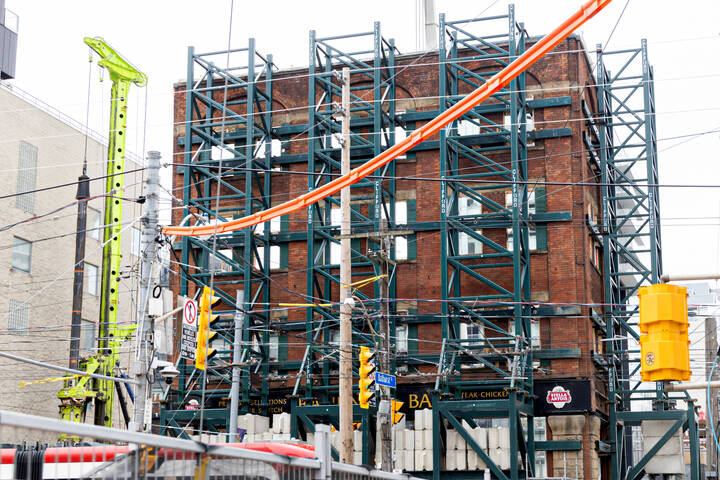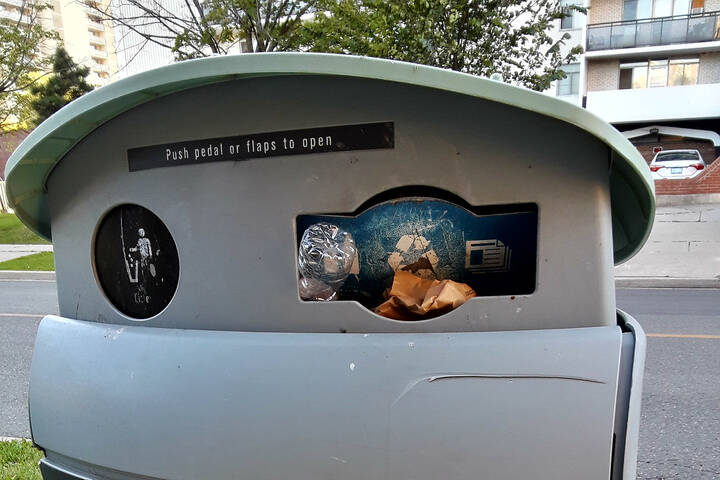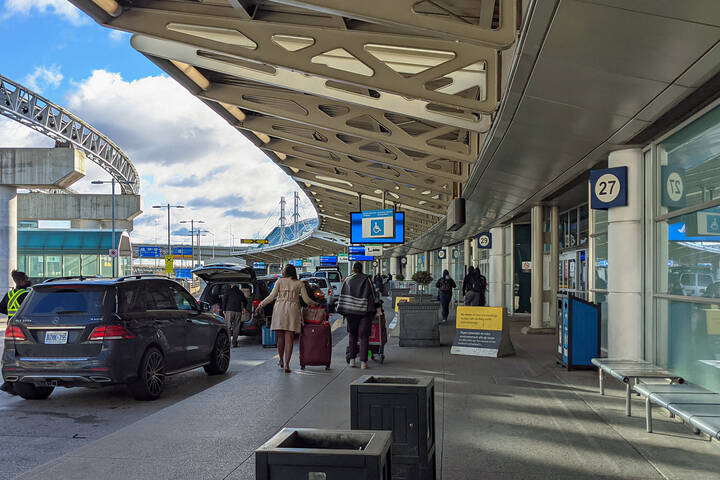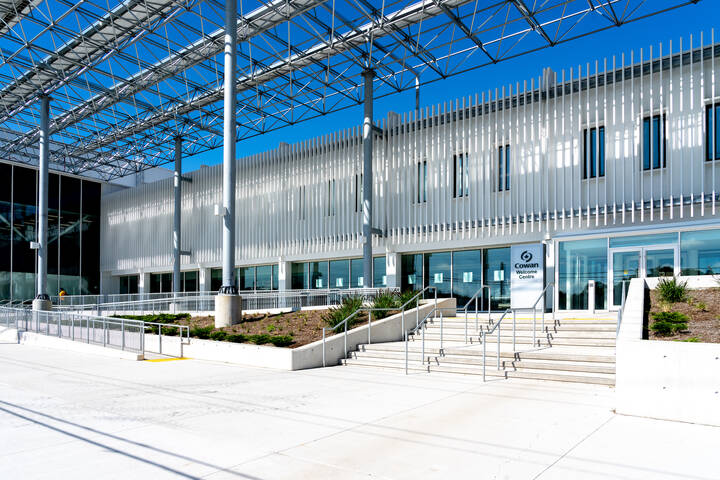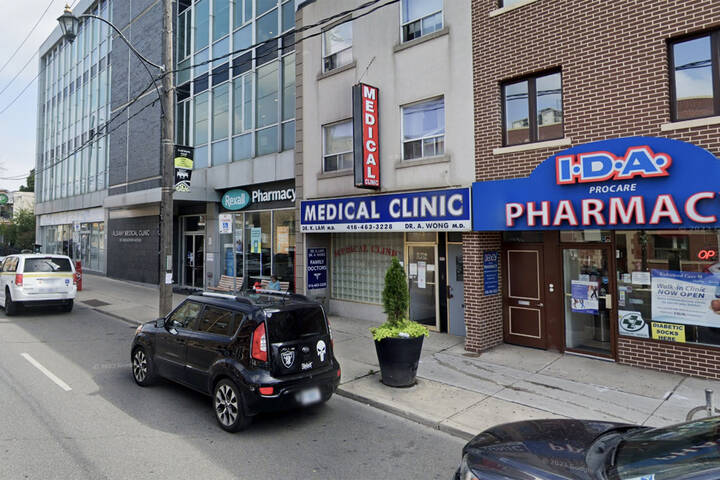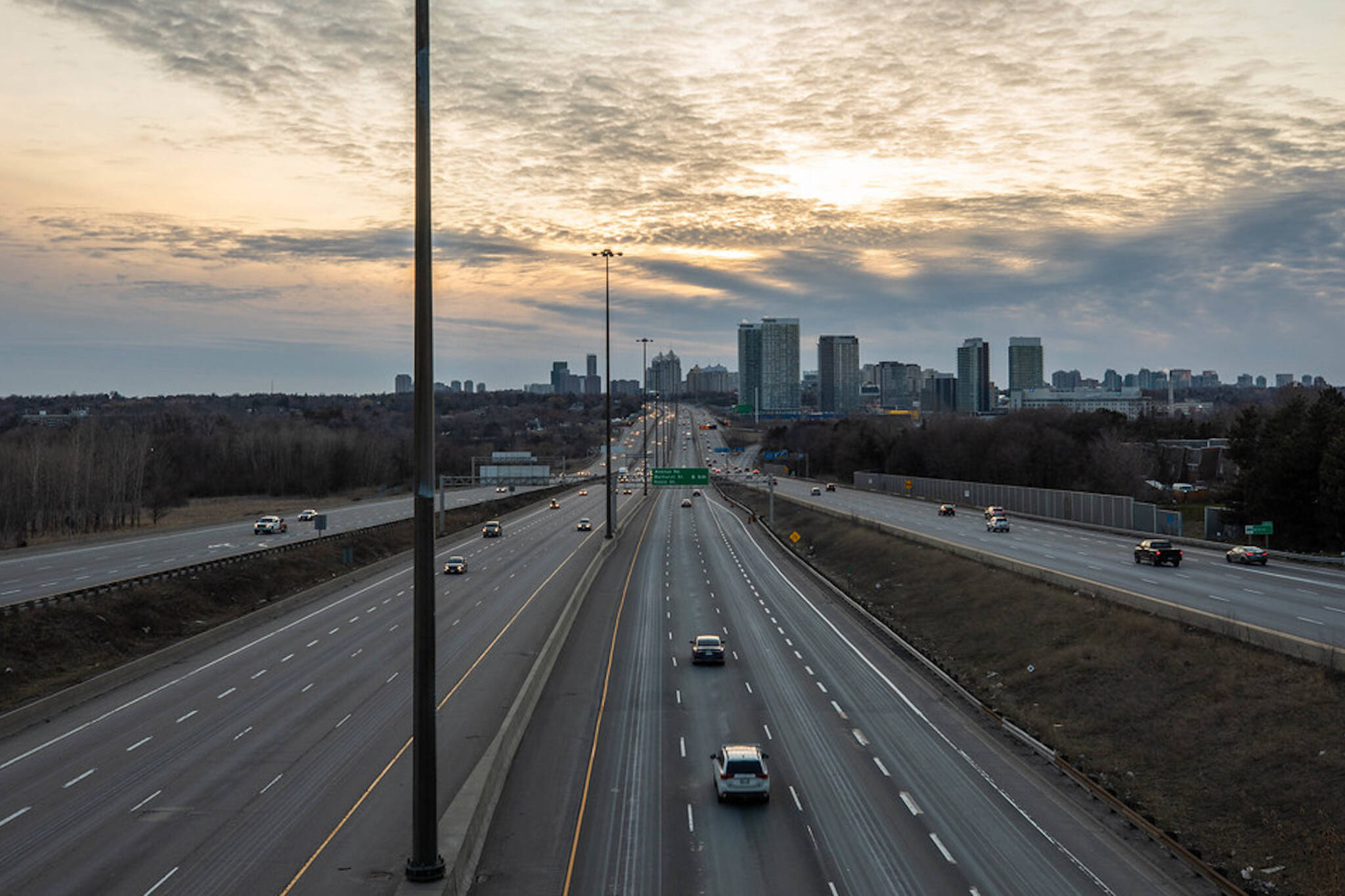
This is how much traffic in downtown Toronto decreased following new restrictions
While lockdown measures introduced back in November didn't immediately have much of an effect on Toronto residents' mobility, it seems the province's most recent restrictions finally convinced more people to start staying home.
According to new data released by the city Friday morning, traffic levels throughout the city decreased significantly following the restrictions that came into effect on Jan. 14.
Using Watch Your Speed signs located in school zones, city staff monitor what traffic volumes might be city-wide, and a news release from the city reveals that car volumes dropped to 68 per cent of baseline volumes during the afternoon peak hours (5 to 6 p.m.) during the first lockdown in the spring.
Car volumes then climbed to as high as 87 per cent in the early fall, and have again dropped to 73 per cent of normal as new measures have been introduced.
The City continues to urge residents to stay home as much as possible to comply with Province of Ontario's stay-at-home order and public health advice. Today, the City released traffic data to help show the impact of the ongoing lockdown. News Release: https://t.co/IfoMHLtbfe
— City of Toronto (@cityoftoronto) January 22, 2021
During the morning peak period (8 to 9 a.m.), which is more directly impacted by school closures, volumes dropped to 44 per cent of normal conditions in the spring, climbed to 80 per cent in the early fall, and have since dropped again to 52 per cent of normal.
"While the signs are not representative of traffic on all roads, they do provide a snapshot of changes in neighbourhoods across Toronto," reads the release.
The city-wide Travel Time Index (TTI) also helps track congestion, according to city staff.
For example, a TTI value of 1.3 represents average travel times that are 30 per cent higher than conditions in which there are no cars on the road, and the average value during the year before the COVID-19 pandemic (February 2019 to February 2020) was 1.76 in the afternoon peak time (5 to 6 p.m.).
During the first lockdown, this dropped to 1.00, which means no traffic congestion, and then rose to as high as 1.39 in the early fall.
As of last week, it was back down to 1.16.
"Similar changes have been observed during the morning peak time (8 to 9 a.m.) in which the index value was 1.23 in the early fall (measured relative to the pre-pandemic period when it was an average of 1.61)," reads the release. "This value has since dropped down to 1.06 of the baseline."
As a third way to measure traffic levels, city staff use traffic counting technology placed at select downtown intersections to monitor how people choose to make trips.
The results show that daily car traffic dropped to 44 per cent of typical volumes during the first lockdown, climbed to 73 per cent by the fall, and dropped again to 63 per cent after the latest measures were introduced.
Pedestrian traffic also dropped significantly in the spring, to 17 per cent of typical volume. That number rose to 30 per cent in the fall, and is now back down to 21 per cent following the new restrictions.
The results of the traffic data fall in line with the non-identifying cell phone data released by Toronto Public Health this week, which showed that a growing number of people are spending more time at home.
"Interestingly, the most recent anonymous data, from January 3 to 9, 2021, shows time at home at 82 per cent. In March of last year, it was 87 per cent," reads the release.
"Statistical models from Toronto Public Health's epidemiology team revealed that even a 1 per cent increase in the proportion of device-time at home two weeks prior can result in a 3 per cent reduction in reported case rates in any given week."
Latest Videos
Latest Videos
Join the conversation Load comments


